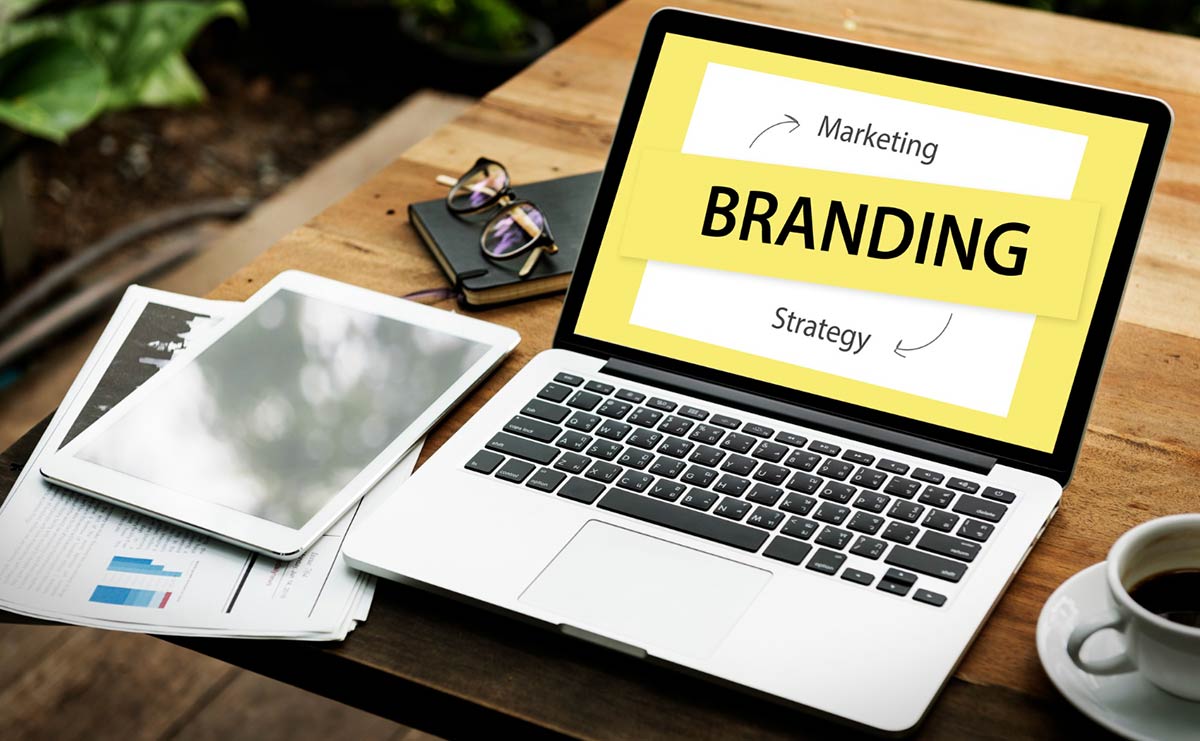Contents
How to Build Your Legal Brand by Being a Quotable Lawyer
Being a quotable lawyer is a powerful legal marketing strategy that builds authority and attracts clients. Journalists, bloggers, and industry professionals are always looking for expert commentary, and if you position yourself as the go-to source for legal insights, you will boost your visibility and credibility. A lawyer’s reputation can be significantly improved through consistent and strategic media outreach. This guide will walk you through the process of becoming a quotable lawyer, from crafting soundbites to leveraging media exposure for your legal brand.
How Being a Quotable Lawyer Can Boost Your Legal Marketing Strategy
In today’s digital and highly competitive legal industry, building a strong personal brand is crucial for attracting clients, establishing authority, and differentiating yourself from other lawyers. One of the most effective ways to enhance your legal brand is by becoming a quotable lawyer whose insights, opinions, and legal expertise are frequently cited in media, social platforms, and professional circles. Being a quotable lawyer can significantly boost your legal marketing strategy by enhancing your credibility, visibility, and influence in your practice area.
Here is why being quotable matters and how it can elevate your legal brand:
1. Establishes You as an Authority
You become recognized as an expert in your field when you are frequently quoted in news articles, legal blogs, and industry discussions. Journalists, bloggers, and even legal professionals look for reliable sources, and being quotable positions you as one. For example, if you specialize in intellectual property law and regularly provide insights on high-profile trademark disputes, your name will be associated with expertise in that area.

2. Increases Visibility and Credibility
Being quoted in respected publications (such as Forbes, The Wall Street Journal, or Law.com) builds trust with potential clients and colleagues. A feature in a credible news outlet acts as a third-party endorsement, reinforcing that your legal opinions are valuable. To maximize exposure, you can leverage your media mentions by sharing them on LinkedIn, your website, and social media.
3. Attracts More Clients
Clients often Google lawyers before hiring them. If they find you quoted in multiple places, it reassures them that you are knowledgeable and well-regarded in your practice area. For instance, if a business owner searches for “top employment lawyer” and sees your name in an article on wrongful termination claims, they are more likely to reach out for a consultation.
4. Enhances Networking and Speaking Opportunities
Once you build a reputation as a quotable lawyer, conference organizers, podcast hosts, and legal panels will invite you to speak. This further expands your reach and solidifies your brand as a legal thought leader. When attending networking events, mention your past media appearances. It adds credibility and makes you stand out.
5. Boosts Your Online Presence and SEO
Quotes and mentions in online publications increase your digital footprint, making it easier for people to find you. More backlinks from high-authority websites improve your SEO ranking, ensuring you appear higher in Google search results. Maintaining a media page on your law firm’s website and listing your press mentions, interviews, and expert commentary can be helpful.
6. Positions You as a Thought Leader on Social Media
Sharing your insights on LinkedIn, Twitter, and legal forums increases your engagement and credibility. If journalists and influencers recognize you as a reliable source, they are more likely to quote you in their work. Create short, insightful LinkedIn posts on trending legal topics and use relevant hashtags to reach a wider audience.
How to Become a Quotable Lawyer
Being a quotable lawyer means becoming a recognized authority whose insights are regularly cited by journalists, legal professionals, and the public. Whether you want to be featured in the news, quoted in legal publications, or recognized as a thought leader, the key is to build credibility, communicate effectively, and strategically position yourself in front of the right audiences.
1. Develop a Unique and Valuable Perspective
Journalists and industry professionals seek experts who provide clear, unique, and authoritative insights. To stand out:
- Stay updated on legal trends, landmark cases, and emerging industry issues.
- Develop expertise in a particular niche to become the go-to authority.
- Offer insightful, fresh perspectives that are different from the typical legal commentary.
- Relate legal matters to broader social, political, and economic contexts to make your opinions more relevant to a broader audience.
2. Master Clear and Concise Communication
A great quote is simple, impactful, and easy to understand. Legal professionals often rely on technical language, but to be quotable:
- Break down complex legal topics into plain language.
- Use analogies, storytelling, and real-world examples to make concepts more digestible.
- Avoid excessive legal jargon—your goal is to be quoted, not to sound complicated.
- Craft short, powerful statements that journalists can easily pick up and use.
3. Publish High-Quality Thought Leadership Content
Being quoted often starts with getting your own ideas published. Consider:
- Writing for legal journals, industry magazines, and online platforms like Above the Law, Law360, or the ABA Journal.
- Publishing op-eds or thought pieces in mainstream publications like The New York Times, The Washington Post, or Forbes.
- Writing white papers, eBooks, or legal guides that position you as an expert in your niche.
- Sharing case studies and legal analyses to showcase your expertise.
4. Establish Yourself as a Public Speaker
A lawyer frequently speaking at events or on media platforms is more likely to be quoted. To enhance your visibility:
- Speak at conferences, legal symposiums, and bar association events.
- Host or participate in legal webinars and live Q&A sessions.
- Offer expert commentary on trending legal cases through TV interviews, podcasts, and YouTube discussions.
- Launch your legal podcast, video series, or newsletter to establish authority.
5. Leverage Case Studies and Real-World Examples
People relate to stories more than abstract legal principles. To make your insights more quotable:
- Use recent cases, regulatory changes, or courtroom battles to illustrate your points.
- Explain how legal decisions impact businesses, individuals, or industries.
- Provide practical takeaways that audiences and journalists can easily remember and quote.
6. Be Quick and Responsive
Media professionals work on tight deadlines. If you want to be a go-to legal expert, you must:
- Respond quickly to journalists when they seek expert opinions.
- Keep short, powerful soundbites ready for quick use.
- Monitor news sources and proactively offer legal perspectives on trending issues.
Mastering media outreach and becoming a quotable lawyer takes strategy, persistence, and strong communication skills. By positioning yourself as a knowledgeable, accessible, and articulate legal expert, you can attract media attention and enhance your professional reputation. Whether you are looking to grow your practice or influence public discourse, media outreach is valuable for any lawyer seeking to expand their reach.
Leveraging Social Media to Amplify Your Quotes
Social media is a powerful tool for expanding your reach, connecting with key stakeholders, and reinforcing your expertise. But simply having a presence is not enough—you need a strategy to make an impact. Here is how you can maximize your visibility and credibility online.
1. Share Media Mentions to Build Authority
If you have been quoted in an article, featured on a podcast, or interviewed on TV, that is a golden opportunity to showcase your expertise. But if you do not share it, you are missing out on valuable exposure. Here is how to make the most of it:
- Post on LinkedIn – Share a summary of the article, highlight key takeaways, and tag the journalist and publication to spark engagement.
- Tweet It – Pull a compelling quote from your feature and link to the full piece.
- Leverage Instagram and Facebook Stories – A quick screenshot of your feature with a simple call to action (e.g., “Check out my latest insights in [publication]!”) can drive engagement.
- Turn It Into a Blog Post – Expand on your quote, adding deeper insights and analysis to attract more traffic to your website.
- Create a Short Video – Summarize the article’s key points in a quick video—people love engaging, digestible content.
By consistently sharing your media features, you reinforce your authority and keep your name top of mind in your industry.
2. Engage with Journalists and News Outlets Online
Want to be regularly quoted in the media? Building relationships with journalists is key, and social media makes it easier than ever. Here is how to do it effectively:
- Follow and Interact – Identify journalists who cover your legal niche and engage with their content—comment thoughtfully, share their work, and show appreciation for their reporting.
- Monitor #Journorequest and HARO – Journalists on Twitter (now X) and platforms like Help a Reporter Out (HARO) often seek expert sources. Keep an eye out for opportunities and respond quickly.
- Be a Resource, Not Just a Self-Promoter – Instead of only sharing your own content, provide valuable legal insights on trending topics. Journalists are more likely to quote experts who are actively engaged in relevant discussions.
The more visible and helpful you are, the more likely journalists will see you as a trusted source.
3. Create Bite-Sized Legal Insights for Social Media
You do not have to wait for media mentions to showcase your expertise—creating and sharing your own legal insights can establish you as a thought leader and attract media attention.
- LinkedIn Insights – Share quick legal tips, case law updates, or myth-busting posts in a way that is easy for professionals and journalists to understand.
- Twitter/X Threads – Break down complex legal issues into short, digestible posts that explain current events in your area of law.
- Short-Form Video (Instagram Reels, TikTok, YouTube Shorts) – A 60-second explainer on a trending legal topic can engage audiences and demonstrate your expertise dynamically.
- Infographics and Carousels – Visually appealing slides that summarize legal concepts make it easy for your audience to grasp and share.
By consistently sharing valuable insights in a clear and engaging manner, you not only educate your audience but also increase the likelihood of being recognized and quoted in the media.
Turning Media Mentions into Business Growth
When your name appears in the media—whether a quote in a legal news article, a feature in a local paper, or a guest spot on a podcast—it is more than just a nice ego boost. It is a business opportunity. Here is how to turn your media mentions into tools for growth, client trust, and industry authority.
1. Use Your Press Features in Client Outreach
Media features add credibility. When contacting potential clients or referral sources, mention your latest media appearance in your email signature or client newsletters.
- Cold Outreach: When contacting potential clients or partners, mention your media features as proof of your expertise.
- Follow-Ups: After initial consultations, include links to interviews or articles where you provide legal insights. This helps reinforce your credibility.
- Newsletters: Share your media mentions with past and potential clients. A simple “As featured in [publication]” link can keep you at the top of your mind.
Your media presence reassures potential clients that you are a trusted legal voice. It also differentiates you from competitors who may not have the same public recognition.
2. Add Media Logos and Quotes to Your Website
If a respected publication or news outlet features you, make it known. A well-placed media logo or quote can increase conversion rates by reinforcing trust.
- Homepage Trust Section: Add a section that says “As Seen In” with recognizable media logos.
- Attorney Bio Pages: Include quotes from interviews or articles where you were featured.
- Testimonials and Case Studies: If media coverage included a case you handled (with permission), integrate it into your success stories.
This visual proof helps visitors see you as an authority before booking a consultation.
In essence, media exposure validates your expertise and increases your reach to clients who might not have found you otherwise. You can turn media features into real business growth by strategically using press coverage in outreach, website branding, and authority-building efforts.
Final Thoughts
Becoming a quotable lawyer is more than just a legal marketing strategy—it is a powerful way to establish your authority, build your brand, and attract new clients. By positioning yourself as a reliable source for legal insights, you gain media outreach and enhance your credibility in the industry.
The key to success lies in developing a unique perspective, mastering clear and concise communication, and actively engaging with journalists and your audience. Whether through publishing thought leadership content, leveraging social media, or responding quickly to media opportunities, every step you take reinforces your expertise and visibility.
However, media exposure alone is not enough. To truly benefit, you must strategically showcase your mentions, integrate them into your client outreach, and use them to boost trust and credibility. When done right, being a quotable lawyer doesn’t just get your name in the press—it translates into real business growth, stronger client relationships, and a long-lasting professional reputation.
Start today by refining your messaging, engaging with the right audiences, and taking advantage of every opportunity to share your expertise. The more you put yourself out there, the more likely you are to become the go-to legal expert in your field.
Take Your Law Firm to the Next Level with RunSensible
RunSensible is your ultimate solution for seamless law firm automation. Designed with legal professionals in mind, it offers an all-in-one platform to streamline your operations and boost efficiency. Simplify your document management with secure cloud storage and real-time collaboration tools. Automate client intake with customizable digital forms and instant data syncing, ensuring a smooth onboarding process.
Stay organized with RunSensible’s calendaring and scheduling features, which sync critical deadlines and send automated reminders. Effortlessly track billable hours and generate accurate invoices with integrated time tracking and billing systems. Manage your emails and tasks through computerized workflows, prioritizing communication and ensuring nothing is missed. RunSensible’s robust CRM tools also help you build lasting client relationships by offering personalized updates and a centralized client database.
Explore how RunSensible’s all-in-one platform can revolutionize your legal department today and keep your organization ahead in a competitive legal landscape. Request a demo now and see how RunSensible can transform your team’s efficiency!
FAQs
1. What are the risks of being quoted in the media?
Misinterpreting your words, potential backlash and ethical considerations are common risks. Always ensure your statements are accurate, align with professional ethics, and avoid making speculative or misleading comments.
2. How often should I aim to be quoted in the media?
Consistency matters. Start by contributing occasionally and gradually increase your presence. Aim for monthly or bi-weekly contributions, depending on your availability and media opportunities.
3. Can I become a quotable lawyer without prior media experience?
Absolutely. Start by sharing insights on social media, writing guest articles, and networking with journalists. With persistence, you can build credibility and become a go-to legal expert in the media.
4. Can I use my media appearances to market my legal services?
Yes, but be strategic. Mention your expertise without overt advertising. You can include links to your firm’s website in interviews or provide professional contact information for follow-ups.
Disclaimer: The content provided on this blog is for informational purposes only and does not constitute legal, financial, or professional advice.







